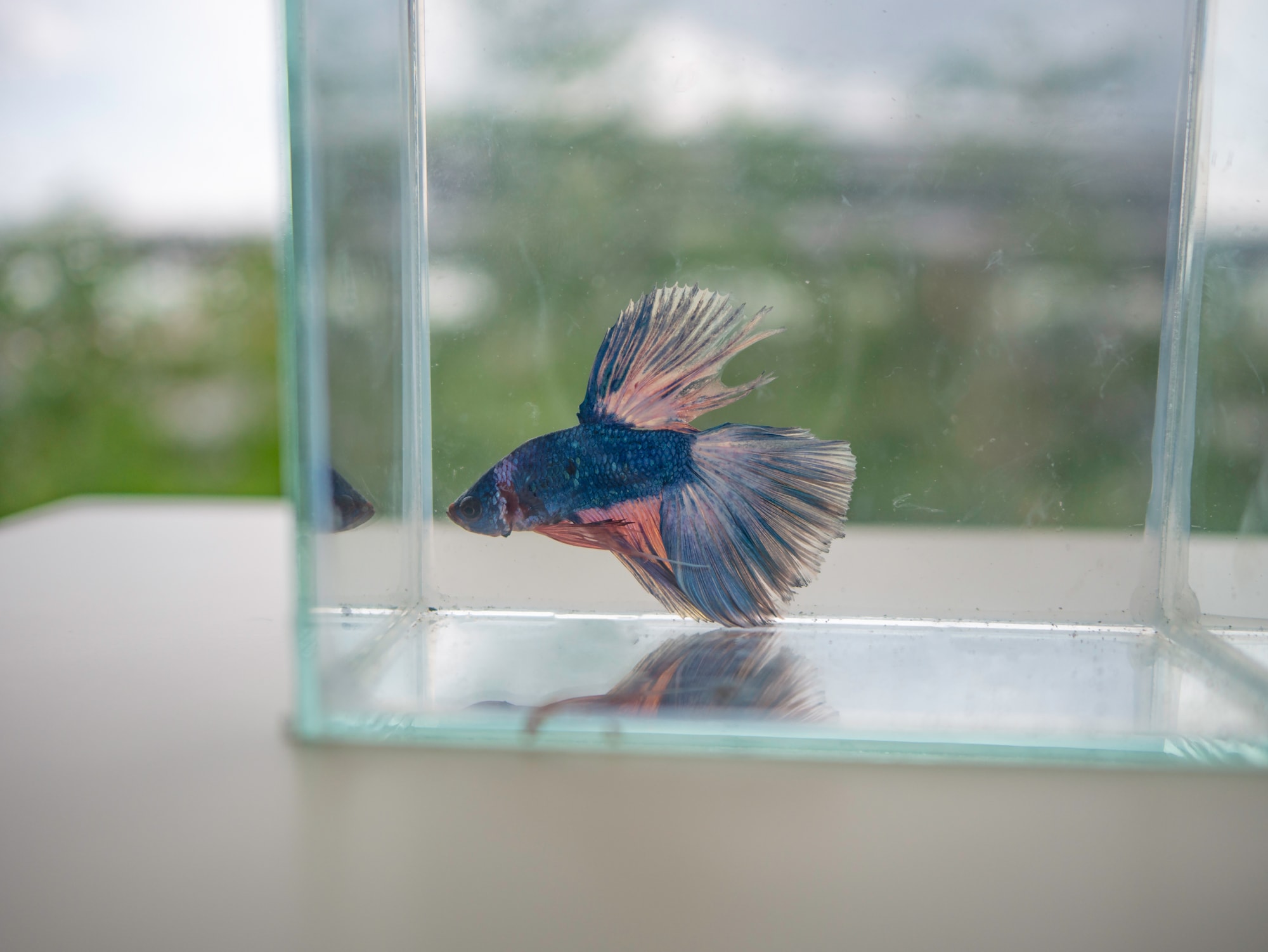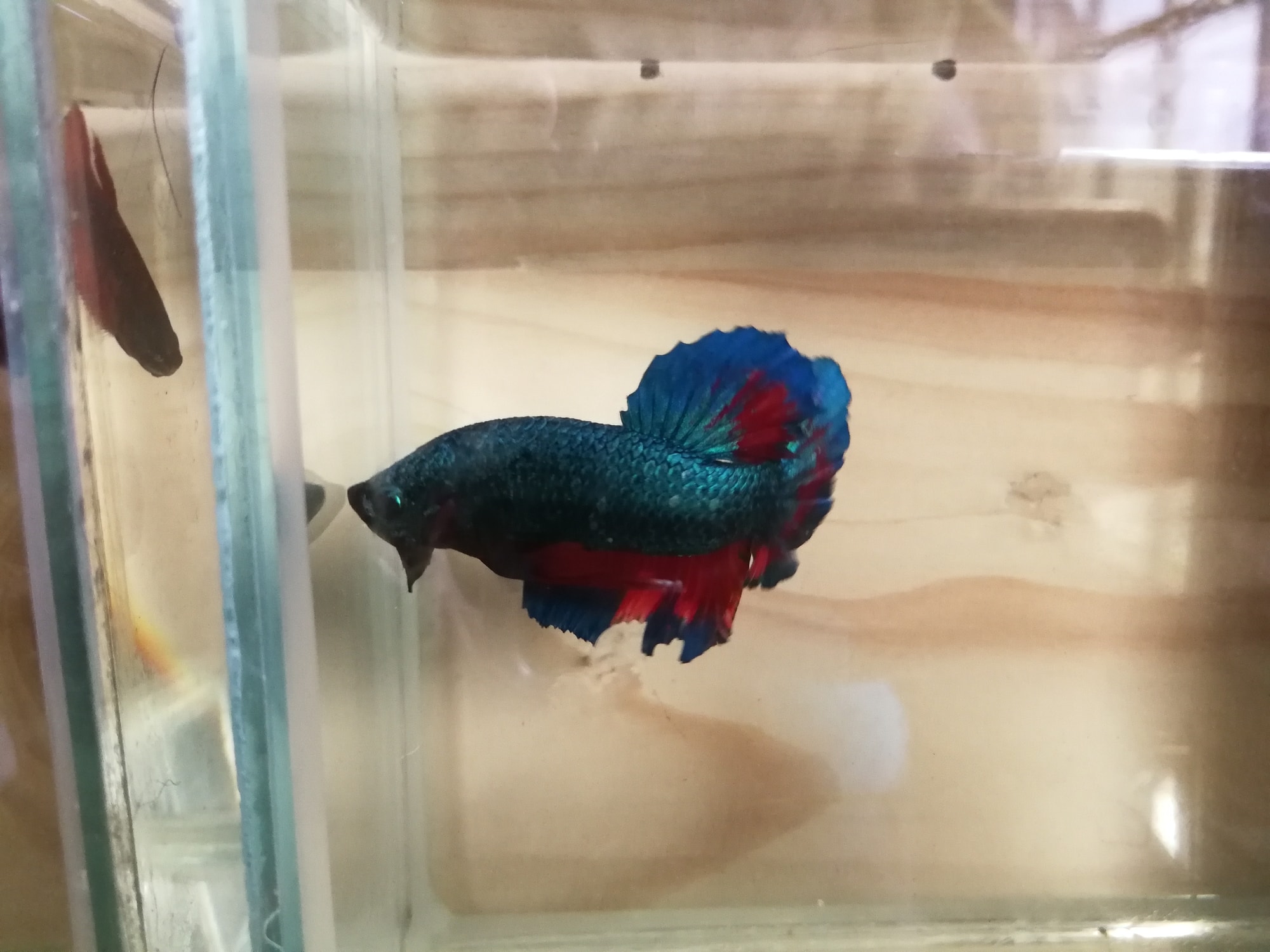Betta fish are one of the most popular aquarium pets due to their vibrant colors and playful personalities. However, sometimes they may exhibit erratic swimming behavior that can be concerning for their owners. If you’re experiencing this issue, don’t worry – there are several reasons why your betta fish might be swimming erratically, and ways to address the problem.
In this article, we’ll explore the different causes of erratic swimming in betta fish, and provide practical tips on how to help your fish regain its balance and health. Whether you’re a seasoned betta fish owner or new to the hobby, understanding the reasons behind this behavior can help you ensure that your fish is happy and healthy in its aquatic home.

Dealing with Betta Fish Swimming Erratically
Betta fish, also known as Siamese fighting fish, are popular among hobbyists because of their vibrant colors and unique personality. However, sometimes these fish can experience health issues that can cause them to swim erratically. In this article, we will discuss the most common causes of erratic swimming in betta fish and how to deal with them.
Water Quality
The quality of water is one of the most important factors for the health and well-being of betta fish. Poor water quality can cause betta fish to swim erratically, as well as other health problems. To maintain the water quality, it is necessary to clean the fish tank regularly. Use a water testing kit to ensure that the water parameters are within the appropriate range.
Additionally, make sure to change the water at least once a week, and replace about 25% of the water every time. Avoid overfeeding the fish, as uneaten food can contribute to poor water quality. Consider investing in a good filter to keep the water clean and fresh.
Temperature
Betta fish are tropical fish and require warm water to survive. If the water temperature is too low or too high, it can cause erratic swimming in betta fish. The ideal temperature range for betta fish is between 75-82°F (24-28°C). Use a thermometer to monitor the water temperature, and adjust the heater accordingly.
Stress
Stress is another common cause of erratic swimming in betta fish. Stress can be caused by a variety of factors, including overcrowding, aggressive tank mates, sudden changes in water temperature or quality, and inadequate hiding spots. Betta fish are solitary fish, so it is important to provide them with enough space and hiding spots to reduce stress.
Disease
Disease is another possible cause of erratic swimming in betta fish. Some common diseases that can cause erratic swimming include fin rot, swim bladder disease, and parasites. If you suspect that your betta fish is sick, quarantine the fish immediately and seek advice from a veterinarian or a knowledgeable fish store staff.
Overfeeding
Overfeeding your betta fish can cause digestive problems, which can lead to erratic swimming. Feed your betta fish a small amount of food once or twice a day, and remove any uneaten food within a few minutes.
Inappropriate Tank Size
Betta fish require adequate space to swim and explore. If the tank is too small, the betta fish may become stressed and swim erratically. The minimum tank size for a betta fish is 5 gallons, but a larger tank is always better.
Water Chemistry
Water chemistry is another important factor to consider when it comes to betta fish health. Betta fish prefer slightly acidic water with a pH range of 6.5-7.5. Make sure to test the water pH regularly and adjust it if necessary.
Fin Damage
Damaged fins can cause betta fish to swim erratically. Avoid sharp decorations in the aquarium, and make sure the filter intake is covered to prevent the fins from getting caught. If your betta fish has damaged fins, consider adding a product like BettaFix to the water to help promote fin healing.
Conclusion
In summary, there are several reasons why betta fish may swim erratically. Maintaining water quality, appropriate temperature, reducing stress, preventing disease, avoiding overfeeding, providing adequate space, monitoring water chemistry, and preventing fin damage can help keep betta fish healthy and happy. By following these tips, you can ensure that your betta fish swims happily and healthily.
Frequently Asked Questions
Here are some common questions and answers about Betta Fish swimming erratically:
What causes Betta Fish to swim erratically?
There are several reasons why a Betta Fish may swim erratically. One of the most common causes is poor water quality. If the water in the fish tank is dirty or has high levels of ammonia or nitrite, it can irritate the fish and cause it to swim erratically. Another cause could be stress, which can be brought on by a number of factors, including overfeeding, overcrowding, or a change in the fish’s environment.
If you notice your Betta Fish swimming erratically, it’s important to check the water quality and make sure it’s within the appropriate range. You may also want to consider reducing the amount of food you’re feeding the fish or providing more hiding spots in the tank to reduce stress.
What are some signs of stress in Betta Fish?
There are several signs of stress that you may notice in your Betta Fish, including swimming erratically, lethargy, loss of appetite, and changes in color. If you notice any of these signs, it’s important to take action to reduce the fish’s stress levels. This could involve making changes to the tank environment, reducing the amount of food you’re feeding the fish, or providing more hiding spots in the tank.
You may also want to consider adding some live plants to the tank, as this can help to improve the water quality and reduce stress levels in the fish. If you’re not sure what’s causing your Betta Fish to be stressed, it’s a good idea to consult with a veterinarian or experienced fish keeper for advice.
Can Betta Fish recover from swimming erratically?
Yes, Betta Fish can recover from swimming erratically, but it depends on the underlying cause of the behavior. If the fish is swimming erratically due to poor water quality, for example, it may recover quickly once the water quality is improved. However, if the behavior is caused by a more serious health issue, such as a bacterial infection or parasite infestation, the fish may require medication or other treatments to recover.
If you notice your Betta Fish swimming erratically, it’s important to take action as soon as possible to identify and address the underlying cause of the behavior. This can help to reduce the fish’s stress levels and improve its overall health and well-being.
What should I do if my Betta Fish is swimming upside down?
If your Betta Fish is swimming upside down, it could be a sign of a serious health issue, such as swim bladder disease. This condition can cause the fish to lose control of its buoyancy and swim upside down or sideways. If you notice your Betta Fish swimming in this manner, it’s important to take action as soon as possible.
You may want to consult with a veterinarian or experienced fish keeper for advice on how to treat swim bladder disease. In some cases, the fish may require medication or other treatments to recover. It’s also important to ensure that the water quality in the tank is within the appropriate range and that the fish is not experiencing any other forms of stress or illness.
How can I prevent my Betta Fish from swimming erratically?
There are several steps you can take to prevent your Betta Fish from swimming erratically, including maintaining good water quality, avoiding overfeeding, providing plenty of hiding spots in the tank, and avoiding overcrowding. It’s also important to keep the tank clean and well-maintained, and to monitor the fish for signs of stress or illness.
If you notice any changes in your Betta Fish’s behavior or health, it’s important to take action as soon as possible to identify and address the underlying cause of the problem. This can help to prevent the fish from experiencing further stress or illness and promote its overall health and well-being.

Betta Swimming Erratically (What It Means & What To Do!)
In conclusion, dealing with a betta fish swimming erratically can be a challenging task. However, with the right knowledge and tools, it is possible to help your fish recover and regain its health.
Firstly, it is important to identify the root cause of the issue. This can be done by observing your fish’s behavior and environment. Once you have identified the cause, you can take the necessary steps to address it.
Secondly, providing a suitable environment for your betta fish is crucial. This includes maintaining the correct water temperature and pH level, providing adequate space, and ensuring that the water is clean and free from harmful chemicals.
Lastly, seeking advice from a veterinarian or an experienced fish keeper can be helpful in some cases. They can provide additional guidance and recommend appropriate treatments for your fish.
By taking these steps, you can help your betta fish overcome swimming irregularities and lead a healthy and happy life. Remember to be patient and persistent in your efforts, and your fish will thank you for it.
